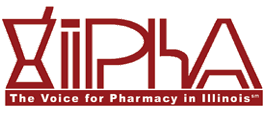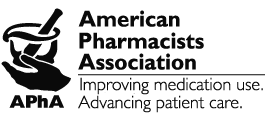Recent Blog Posts
What Can Cause a Loss of Dispensing Privileges for Pharmacists?
 A pharmacist with dispensing privileges can fill prescriptions for controlled substances and dispense FDA-approved medication to patients. If these dispensing privileges are revoked, it can shut down a pharmacy and cause harm to a pharmacist’s career. Certain violations or mistakes can lead to a loss of these privileges, as well as disciplinary actions such as license suspension or revocation. To avoid such scenarios, consult an Illinois pharmacy license defense attorney who can defend your license and dispensing privileges.
A pharmacist with dispensing privileges can fill prescriptions for controlled substances and dispense FDA-approved medication to patients. If these dispensing privileges are revoked, it can shut down a pharmacy and cause harm to a pharmacist’s career. Certain violations or mistakes can lead to a loss of these privileges, as well as disciplinary actions such as license suspension or revocation. To avoid such scenarios, consult an Illinois pharmacy license defense attorney who can defend your license and dispensing privileges.
What Are the Top Reasons for the Loss of Dispensing Privileges?
Pharmacists are required to comply with Illinois state laws set out in the Illinois Pharmacy Practice Act and the Illinois Controlled Substances Act. Failure to do so can lead to the revocation of a pharmacist’s license or dispensing privileges by the Illinois Department of Financial and Professional Regulation (IDFPR). Pharmacists can also risk investigations by the Drug Enforcement Agency (DEA) if they violate federal law.
What Are My Rights if a Hospital Wants to Suspend My Privileges?
 Hospital privileges are important for patient care and vital to a physician’s practice and reputation. A loss of these privileges can be devastating for a licensed health professional and can impact his or her career. If a hospital wants to suspend a physician’s privileges, it must follow certain guidelines set in Illinois law. These guidelines include certain rights that every health professional is entitled to when faced with the loss of hospital privileges.
Hospital privileges are important for patient care and vital to a physician’s practice and reputation. A loss of these privileges can be devastating for a licensed health professional and can impact his or her career. If a hospital wants to suspend a physician’s privileges, it must follow certain guidelines set in Illinois law. These guidelines include certain rights that every health professional is entitled to when faced with the loss of hospital privileges.
This article will discuss when hospitals can suspend a member’s privileges and the member’s rights when facing a suspension. For more details or questions regarding your specific case, consult an experienced Illinois professional license defense attorney.
Why Do Hospitals Suspend Privileges?
Hospitals may decide to suspend a physician's privileges for a variety of reasons. The most common ones include:
5 Ways Hiring Practices Can Jeopardize Your Dental License
 Managing a successful dental practice is a complex operation. Ordering supplies, billing, scheduling, and patient care are all day-to-day tasks that require attention to detail. Another part of the operation is the hiring and managing of staff. While that may seem standard to any business, dentists must take special care to comply with certain laws and regulations for hiring and supervising employees. When dentists focus only on following legal requirements for patient care but are not cautious in their hiring practices, it can expose their licenses to disciplinary action.
Managing a successful dental practice is a complex operation. Ordering supplies, billing, scheduling, and patient care are all day-to-day tasks that require attention to detail. Another part of the operation is the hiring and managing of staff. While that may seem standard to any business, dentists must take special care to comply with certain laws and regulations for hiring and supervising employees. When dentists focus only on following legal requirements for patient care but are not cautious in their hiring practices, it can expose their licenses to disciplinary action.
This article will discuss five ways hiring and supervision practices can jeopardize your dental license in Illinois. To protect your license against legal threats, consult an experienced Illinois dental license defense attorney.
Supervising Too Many Dental Staff
Dentists usually need to hire staff like dental assistants and hygienists, but supervising too many at one time can stretch them too thin. Under the Illinois Dental Practice Act, a dentist may not supervise more than four dental hygienists at once. Supervision does not require the dentist to be in the room during the entire procedure, but it does mean he or she must:
What Happens if I Fail to Obtain Informed Consent as a Chiropractor?
 In most cases, medical practitioners are required to obtain informed consent from their patients before a procedure. This is not only an ethical obligation but also a legal one. Under Illinois law, patients have a right to understand the nature of the treatments they receive and their side effects before consenting to them. This is also one of the nine principles in the American Medical Association’s Code of Medical Ethics.
In most cases, medical practitioners are required to obtain informed consent from their patients before a procedure. This is not only an ethical obligation but also a legal one. Under Illinois law, patients have a right to understand the nature of the treatments they receive and their side effects before consenting to them. This is also one of the nine principles in the American Medical Association’s Code of Medical Ethics.
Failure to obtain informed consent is a major breach of legal and ethical codes. If a chiropractor or any medical practitioner is accused of providing treatment without informed consent, he or she can face serious penalties such as license revocation or suspension. The first step to take if you are accused of treating a patient without informed consent is to contact an Illinois license defense attorney who can provide you with the best legal protection possible.
What Can a Nurse Accused of Patient Neglect Do? | IL
 Registered nurses are required to adhere to strict laws and regulations, especially when tending to patients. Failure to do so can result in allegations of patient neglect. A nurse who is determined to have neglected a patient may not only have his or her license revoked but can even face fines and prison time.
Registered nurses are required to adhere to strict laws and regulations, especially when tending to patients. Failure to do so can result in allegations of patient neglect. A nurse who is determined to have neglected a patient may not only have his or her license revoked but can even face fines and prison time.
The Illinois Board of Nursing, which is under the Illinois Department of Financial and Professional Regulation (IDFPR), regulates the nursing profession. The board is responsible for taking disciplinary actions such as reprimands, license suspensions, and license revocations. If you are facing allegations of patient neglect, hire an Illinois license defense attorney who will defend you to the Board of Nursing.
What Is Patient Neglect in Illinois?
The definition of patient neglect is fairly broad. Under Illinois law, a caregiver may be guilty of neglect if he or she negligently fails to provide care to a patient and that negligence causes injury or deterioration of the patient’s mental or physical pre-existing condition.
What Is the Role of an Attorney in Defending Against DEA Audits?
 Physicians, hospitals, and pharmacists are sometimes subjected to audits by the Drug Enforcement Administration (DEA). The purpose of an audit is to determine whether there have been any violations of the Controlled Substances Act, which regulates the distribution of drugs. DEA investigators specifically look for any indications of drug diversion, where medication prescribed for a patient is given to someone else.
Physicians, hospitals, and pharmacists are sometimes subjected to audits by the Drug Enforcement Administration (DEA). The purpose of an audit is to determine whether there have been any violations of the Controlled Substances Act, which regulates the distribution of drugs. DEA investigators specifically look for any indications of drug diversion, where medication prescribed for a patient is given to someone else.
A DEA audit can be a harrowing experience and result in serious penalties. These may include license revocation, criminal charges, and/or the revocation of the provider’s DEA registration that allows it to dispense drugs. That is why an Illinois DEA audit defense attorney is essential for responding to audits and maintaining your business.
How Does a DEA Audit Work?
An audit may start with the DEA sending the pharmacy a document called Form 82, which asks for the pharmacy owner’s consent to allow the DEA to conduct an audit. Other times, the DEA may obtain a warrant and audit the pharmacy without notice or the owner’s consent.
The Most Common Threats to a Physical Therapy License
 It takes a lot of work to earn a physical therapy license, but it also takes work to maintain it. Aside from meeting requirements like continuing education, physical therapists sometimes must defend their licenses from allegations of misconduct, billing errors, and other issues that can place their practice in jeopardy.
It takes a lot of work to earn a physical therapy license, but it also takes work to maintain it. Aside from meeting requirements like continuing education, physical therapists sometimes must defend their licenses from allegations of misconduct, billing errors, and other issues that can place their practice in jeopardy.
Professionals who fail to adequately fend off charges of wrongdoing can face disciplinary action from the Illinois Department of Financial & Professional Regulation’s (IDFPR) Physical Licensing and Disciplinary Board. Such actions may include license suspension or revocation.
This article will explore some of the most common reasons physical therapists receive disciplinary actions, as well as how to contact an Illinois physical therapy license defense attorney.
What Are Some Common Risks to a Physical Therapy License?
Physical therapists face risks to their license that can be administrative or related to patient interaction. For example:
What Are My Rights During a PBM Pharmacy Audit?
 Pharmacy benefit managers (PBMs) are companies that act as middlemen between pharmacies and health plans or insurers. Originally created in the 1960s to process insurance claims, PBMs have grown in power and serve several functions, one of which is setting the prices for prescriptive medications. PBMs do this by negotiating drug prices with insurance companies. When a pharmacy fulfills a prescription, it sends the claim to the PBM, which charges the insurer the negotiated price. The PBM then reimburses the pharmacy for the medication while pocketing some of the cost.
Pharmacy benefit managers (PBMs) are companies that act as middlemen between pharmacies and health plans or insurers. Originally created in the 1960s to process insurance claims, PBMs have grown in power and serve several functions, one of which is setting the prices for prescriptive medications. PBMs do this by negotiating drug prices with insurance companies. When a pharmacy fulfills a prescription, it sends the claim to the PBM, which charges the insurer the negotiated price. The PBM then reimburses the pharmacy for the medication while pocketing some of the cost.
Although PBMs have become controversial, they remain a reality in the pharmaceutical industry.
PMBs occasionally conduct audits of pharmacies. A pharmacy may be randomly selected, or a complaint or discrepancy may trigger the audit. Either way, it can be a difficult and costly ordeal. Because PBMs wield a lot of power, it is important to know your legal rights if you are audited. This article will discuss what a PBM audit is, your legal rights, and how to contact an Illinois PBM audit attorney who will protect you.
5 Reasons Your Real Estate License May Be in Jeopardy
 Any real estate professional who wants to conduct business in Illinois must maintain a valid professional license issued by the Illinois Department of Financial and Professional Regulation (IDFPR). For some professionals, maintaining this license can be challenging. There are several reasons why a real estate license can be suspended or revoked by the IDFPR’s Real Estate Administration and Disciplinary Board. Some of these violations may be intuitive, but they nevertheless cost a number of professionals their licenses each year.
Any real estate professional who wants to conduct business in Illinois must maintain a valid professional license issued by the Illinois Department of Financial and Professional Regulation (IDFPR). For some professionals, maintaining this license can be challenging. There are several reasons why a real estate license can be suspended or revoked by the IDFPR’s Real Estate Administration and Disciplinary Board. Some of these violations may be intuitive, but they nevertheless cost a number of professionals their licenses each year.
This article will discuss five ways a real estate professional can lose his or her license. As we explore these violations below, remember that the key to successfully defending your license is hiring an Illinois real estate license defense attorney.
Failing to Meet Continuing Education Requirements
Real estate professionals must meet continuing education requirements to maintain their licenses. A real estate broker licensed before November 1, 2021, for instance, must complete 12 hours of continuing education. Brokers licensed after that date must complete 45 hours of courses. Failing to meet these conditions can lead to a suspension or revocation of a real estate broker’s license.
Can My Social Media Activity Affect My Psychology License?
 Social media is used so often that many see it as routine. According to some estimates, the average user spends two hours and 31 minutes on social media a day. It is a public space where billions of people around the world go to share their personal and professional lives, thoughts, ideas, and more.
Social media is used so often that many see it as routine. According to some estimates, the average user spends two hours and 31 minutes on social media a day. It is a public space where billions of people around the world go to share their personal and professional lives, thoughts, ideas, and more.
That is why social media can be a double-edged sword for clinical psychologists. The more you immerse yourself in online life, the harder it can be to remain vigilant about your activity. It can be difficult to remember that even when posting content to your personal pages you still have professional duties to your patients that can make some of that content problematic.
This article will discuss how social media activity can affect a licensed clinical psychologist (LCP). If you think your license may be in jeopardy, contact an Illinois clinical psychologist license defense attorney to begin building your defense.
















